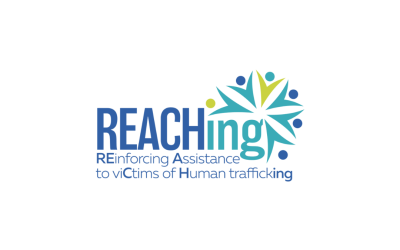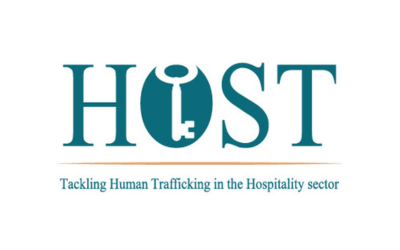Creating a space and time within the prison to normalize the parent-child relationship and strengthen the parental role, ensuring the well-being of minors both inside and outside the prison walls.
Context
Labirinti is a multidimensional socio-educational initiative supporting minors who are children of incarcerated parents across four territories: Catania, Ragusa, Palermo, and Sciacca. The labyrinth serves as a metaphor for the journey undertaken to reshape the perception of these minors in relation to the prison environment and their parents’ detention, opening up new possibilities and unexplored pathways.
The approach is systemic and integrated, ensuring support for minors both inside and outside prison through community-based education, school support, and workshops aimed at developing relational skills. At the same time, the project works with both incarcerated and non-incarcerated parents to strengthen their parenting roles and help them navigate relational challenges with their children. Another key area of intervention focuses on training and reflection for the professionals involved, while the Territorial Working Groups aim to build a shared policy framework.
Objectives
- Contribute to changing and improving the rights and conditions of entry for children of individuals temporarily in detention within correctional facilities;
- Support the complexity of parenting in detention through creative and expressive workshops that strengthen the parent-child relationship;
- Provide training for all educational and institutional professionals within and around the prison system, equipping them with the skills needed to engage with the complexities of parenting in detention;
- Implement multidimensional strategies and interventions to shift the narrative on the inclusion of children of incarcerated parents.
Activities
- Setup of “Labirinti Gialli”, dedicated spaces for children within correctional facilities, designed to make prison visits less traumatic during family meetings;
- Implementation of social theatre programs, group dramaturgy, and talking groups involving parents and their children;
- Creation and facilitation of cultural and recreational events engaging families (both detained and non-detained parents and their children);
- Development of community-based educational activities and school support programs for children of incarcerated parents;
- Implementation of recreational and play-based workshops for diverse groups of minors (both children of detainees and their peers) to foster relational, emotional, and social skills;
- Parental guidance and emotional literacy programs for minors referred by the USMM (Juvenile Social Services Office), who either have an incarcerated parent or are parents themselves;
- Establishment of a family mediation service in prison, supporting parenting roles, and a psycho-pedagogical support service outside prison for non-incarcerated parents experiencing the prison system and for ex-detainee parents after release;
- Reflection and training sessions for prison officers, using group work, role-playing, and Theatre-Forum methodologies, to help them understand the needs of incarcerated parents during visits with their children;
- Implementation of training programs for teachers in schools with a high percentage of students with incarcerated parents;
- Training for social and cultural workers wishing to operate inside prisons, equipping them with tools to manage relationships with individuals in conflict with the law, emotional regulation, and transformative intervention pathways;
- Breaking the stigma surrounding incarceration through school-based interventions in institutions with a high percentage of students with incarcerated parents;
- Production and dissemination of a serialized narrative podcast on the experience of parenting in prison, aimed at raising awareness and informing the public;
- Establishment of a cross-territory working group to discuss procedures and best practices, with the goal of drafting a single regional policy document on the protection and care of minors with incarcerated parents and the parental role of detainees.
Resources
- Public events showcasing the outcomes of social theatre and group dramaturgy workshops;
- Experience journals;
- 1 policy document;
- 1 episodic podcast.
Impact
- Strengthening the parent-child bond inside and outside the state of detention;
- Improving family relationships inside and outside prison;
- Supporting minors in navigating the prison environment;
- Enhancing the skills of educators, prison officers, and teachers of children with temporarily detained parents in managing emotions;
- Strengthening the institutional network surrounding minors affected by a parent’s detention.
Partners
- Associazione Officina socialmeccanica (Italy, coordinator)
- Aragorn Iniziative srl (Italy)
- ASD FACCIAMO SCUOLA (Italy)
- ASSOCIAZIONE DI PROMOZIONE SOCIALE CRISCI RANNI (Italy)
- Associazione Mosaico (Italy)
- Casa Circondariale Catania Piazza Lanza (Italy)
- Casa circondariale di Sciacca (Italy)
- Casa Circondariale Palermo “Pagliarelli – Antonio Lorusso” (Italy)
- CASA CIRCONDARIALE RAGUSA (Italy)
- Centro Internazionale delle Culture Ubuntu ETS Onlus (Italy)
- CESIE ETS (Italy)
- Comune di Catania (Italy)
- Comune di Palermo (Italy)
- Comune di Ragusa (Italy)
- Comune di Sciacca (Italy)
- IC ELIO VITTORINI (Italy)
- Giolli società cooperativa sociale (Italy)
- I clown dottori di Ci Ridiamo Sù aps (Italy)
- IC FRANCESCO PETRARCA – CATANIA (Italy)
- ri-mani società cooperativa sociale (Italy)
- Rugby I Briganti ASD ONLUS (Italy)
- Ufficio di Servizio Sociale per i Minorenni – Catania (Italy)
- Ufficio di Servizio Sociale per i Minorenni – Palermo (Italy)










